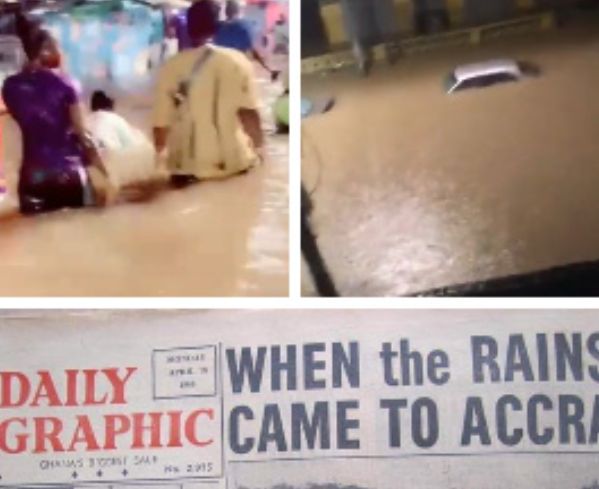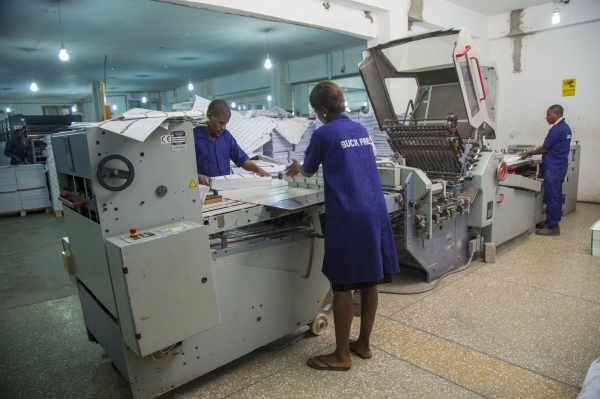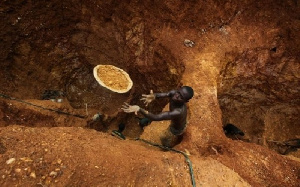Why Accra still looks like it did in the 1960s when it rains

Talk of one thing Ghana has been consistent with and flooding will be the closest to mention. Harsh, maybe, but with hard truths come hard talks and hard decisions.
Dare say floods in parts of Ghana, particularly in its capital Accra have been more consistent than any developmental project even in the history of the country and you wouldn’t be far from right. Floods on an annual basis take over many parts of the country including places in Kumasi, Assin Bereku, Daboya, etc.
For the purposes of this piece, however, I will stick to floods in the capital of Ghana, Accra.
62 years on:
62 years or maybe more! That’s how long a country which is 65 years has been battling what has now come to be known as the Accra Floods.
A clip of an old article published in the state-owned Daily Graphic on Monday, April 18, 1960, captures the headline – “WHEN THE RAINS CAME TO ACCRA” boldly written on the front page of the newspaper.
To give it more depth, photos of parts of the capital flooded, and people scooping out water from their homes were splashed under the headline, with a bit of the story beneath it.
It read, “These pictures tell the story of the day when the rains once again came to Accra. Many streets and houses were completely flooded following a heavy downpour of rain in Accra at the weekend. At the Kwame Nkrumah Circle, traffic was held up for two and half hours. In the nearby houses as seen in the left picture, women used buckets and pans to collect water from their flooded compounds. In all, 2/15 inches of rainfall was recorded. This is believed to be the heaviest rainfall in Accra for one year. The Amoye picture shows the flooded Kwame Nkrumah Circle and the traffic that was held up. People had to wade knee-deep.”

Whilst this made waves on various social media platforms, it emphasized one very disturbing fact, nothing has changed as far as controlling the flood situation in the country is concerned and more so for over 6 decades.
Destruction caused by floods:
On a typical rainy day, when people should merely be concerned about getting to their respective destinations and enjoying the cool weather, it is different in Accra-Ghana.
People have to worry about driving through the flooded roads to get home or avoid being carried away by the water by parking till they recede.
Not to talk of the owners and occupants of the various homes that have to worry about salvaging their properties because the floodwaters will gush into their homes and destroy same.
As for catching some sleep throughout the night after a rainy day, it’s next to impossible for families who live in areas mostly affected by floodwaters.
Scenes Adabraka after Monday night’s downpour
Major flooding events that have led to the loss of lives:
Let’s go back a little in time to take a look at some of the major losses the country has made as far as lives and properties are concerned on some occasions when it rained heavily in Accra.
June 3 flood and fire disaster:
It was and remains one of Ghana’s biggest disasters. On the night of June 3, 2015, several lives, over 250 were lost and many others sustained major life-threatening injuries and lifetime scars after floods took over the Kwame Nkrumah Circle coupled with a gas/fire explosion.
Military couple die in flood:
A military man S/Sgt Arthur Jabez, 45 and his wife WO Sarah Kuadzi died after a heavy downpour on Sunday, April 14, 2019. The two were travelling in a military pick up from a funeral in Tema when their vehicle got caught in the floodwaters at Adjei-Kojo on the Tema Motorway.
The couple was in a car with an 11-month-old baby and another passenger.
Newly constructed railway washed away by floodwaters at Achimota:
On June 9, 2020, portions of a railway line laid by the Ghana Railway Company Ltd. at Achimota were washed off its tracks by floodwaters and had to be re-engineered.
Flash Floods leave 3 dead in Greater Accra:
This was a headline from the DailyGraphic after a downpour on Monday, June 19, 2018, left some 3 persons dead. NADMO reported after the floods that a female doctor, a 2-month-old baby girl and a 40-year-old man died from drowning after the rains swept through parts of the capital.
Very disturbing events and these have been caused by factors such as cracks in policymaking and enforcement, negligence, inadequate and improper drainage systems and attitudes.
Why floods persist:
Plastic waste:
Ghanaians have complained over and over again about the government’s role in sanitizing the capital and indeed their complaints are not misplaced.
There are a number of things creating the problem of flooding and sustaining it and the biggest of them all is plastic waste or non-biodegradable plastics.
According to the Global Plastic Action Partnership, Ghana generates around 1.1 million tons of plastic waste per year and out of this, only 5% is collected for recycling.
This summarises how big a problem this is for the country and as far as floods is concerned. Despite the large quantities of plastic waste spewed out annually, there is very little way of controlling this.
Non-biodegradable plastics have been identified by the United Nations as one of the world’s biggest environmental challenges.
The probable solution which is banning plastic waste and using less environmentally harmful materials like wood, ceramics, and fibre among others, has largely been ruled out by successive governments in the country.
The Ghanaian government contemplated banning certain kinds of plastic usage in 2015 as a means of addressing the challenges of plastic waste but this has since not been fully implemented and the plastic waste challenge continues.
In 2019 for instance, Prof. Kwabena Frimpong Boateng, Minister for Environment, Science and Technology said banning plastics will not be in the best interest of Ghana because of the dependence by citizens on it.
His proposal was the management of these plastic products.
Days ago, on May 4, 2022, Dr Kwaku Afriyie, Minister for Science, Technology and Innovation during a press conference also disclosed that the government will not ban the use of plastics in the country. Rather he said, the government will look for new and sustainable ways to protect the environment.
The issue though is that, so long as plastics remain in the system, pollution will exist, the water system will malfunction and drainage systems will be clogged. As long as drainages are clogged, floods will remain.
Scenes from the Kwame Nkrumah Circle after Monday’s downpour
Littering and attitudes of citizens:
The attitudes of Ghanaians will remain a big factor that will continuously cause floods in Accra until there is a change.
There are many reasons why the point is raised about attitude and this is the argument –
The heaps of rubbish that emerge on our roads and in homes after the rains is enough evidence that littering is one reason we still have floods.
People dump rubbish anyhow, anywhere, at any time. Drains are filled with debris and are mostly choked by same. These same drains that are supposed to serve as waterways to allow for free flow of water when it rains are choked and water stays and builds up when it cannot flow freely when it rains, the result? – FLOODS.
The government has advised, public education is done but really, the attitudes remain and so will the floods.
Every year, the Odawna lagoon has to be dredged to make space for water. A visit to the place will give you a summary of the filth situation in the capital.
Some may argue that drainage systems are not enough, or that there needs to be an expansion or better still, the engineering work was not done well.
That is an undeniable fact that cannot be underplayed but the fact still remains that until the attitudes of Ghanaians are fixed, nothing really will change. The rains will come, the drains will remain choked, floods will occur, roads will be taken over, and homes will be flooded.
Disposal of waste or waste management:
From persons employed to desilt drainage systems in various parts of the capital, to waste trucks, to the government, the issue is how waste is disposed of. Now it is common to see these tricycles, visiting some areas in the country to pick up rubbish.
How are these disposed of? For the most part, some of these are not well covered and end up on the roads whilst they drive to the dumpsites.
Even with dumpsites, how is the filth eventually gotten rid of? They only pile up for years. They ultimately end up being washed away by floodwaters sometimes and are added to the entire drainage problem.
What can be done:
Solutions can be clearly outlined indicating proposed measures from the government, Members of Parliament and some citizens alike but let’s keep it real and brief – this is what we need if floods are going to reduce significantly – Government needs to take drastic decisions to deal with the plastic waste situation in Ghana once and for all. Authorities need to sit up and fix the drainage issues.
And Ghanaians need to WAKE UP! And quit the indiscipline. Littering may seem rather insignificant but until the floodwaters get into your room or hurt a loved one, you will not see the need to quit.





